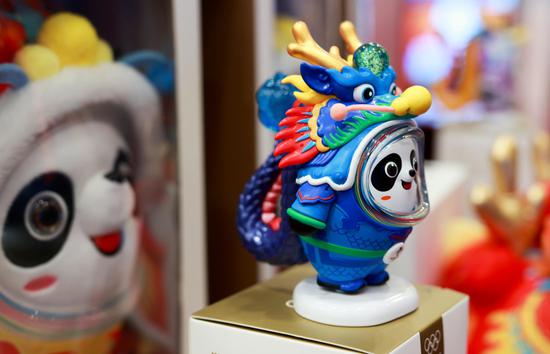Demand rises for wide range of produce and products from overseas
A new fresh milk product was unveiled by New Zealand dairy brand Theland during the sixth China International Import Expo in Shanghai last month.
Transitioning from being a mere exhibit to a tangible product in just 72 hours, the new arrival was delivered to consumers' doorsteps through Tmall, Alibaba's business-to-customer e-commerce platform.
On a Monday, the milk was taken from cows on a New Zealand dairy farm, processed in the company's factory and loaded onto an airplane that evening. The following day, it reached Shanghai Customs, ready to be distributed, before finally reaching consumers on a Wednesday.
Imported food has increasingly become a feature on Chinese dining tables, and in addition to milk from New Zealand, coconuts from Thailand, cherries from Chile, red wine from France and pine nuts from Afghanistan are in demand.
As the sources and varieties continue to diversify, imports have emerged as a vital addition to China's wide range of food supplies.
At the same time, domestic enterprises are shifting from a global purchasing strategy to strategically establishing a worldwide supply chain with an emphasis on global manufacturing.
At the Shanghai expo, the food and agricultural produce exhibition area stood out with the highest number and widest range of participating enterprises. The expo was attended by more than 1,000 companies from over 100 countries and regions, showcasing the widespread appeal of the Chinese imported food market.
More than 40 percent of the coconuts imported by China each year come from Indonesia, the world's leading coconut producer. Indonesia also accounts for nearly 30 percent of global coconut production, and is a major raw material supplier for the domestic coconut processing industry.
During the expo, Joyvio Group, a producer and online vendor of fruit in China, signed a strategic cooperation agreement with Indonesian agricultural and food giant PTPN Group, and with the AGL Group.
The three parties will join hands to assist imports of key Indonesian agricultural produce such as coconuts, tea leaves and coffee beans to the Chinese market.
As a pivotal event at the expo, the 2023 China Import Food Summit was held on Nov 7 at the National Exhibition and Convention Center in Shanghai. The summit was organized by the China Chamber of Commerce of Import &Export of Foodstuffs, Native Produce and Animal By-products.
The China Food Import Report 2023 released during the summit highlighted the fact that China has become the world's largest food-importing country, with a total import value of $139.62 billion last year — year-on-year growth of 3.1 percent. This year, the nation's total food import value is forecast to reach $140 billion.
The top two source countries by import value are the United States and Brazil, which respectively account for 12.1 percent and 9.2 percent of China's total global food imports, followed by New Zealand in third place, with 7.8 percent.
The report said China's food import value has grown consistently in recent years, with China Customs statistics showing that the average compound annual growth rate reached 12.3 percent from 2013 to last year.
Six major categories of imported food and agricultural produce — meat, grains, aquatic products, fruit, dairy products and vegetable oils — comprise nearly 80 percent of the nation's total food import value. Import values for each of these six categories exceeded $10 billion last year.


















































 京公网安备 11010202009201号
京公网安备 11010202009201号